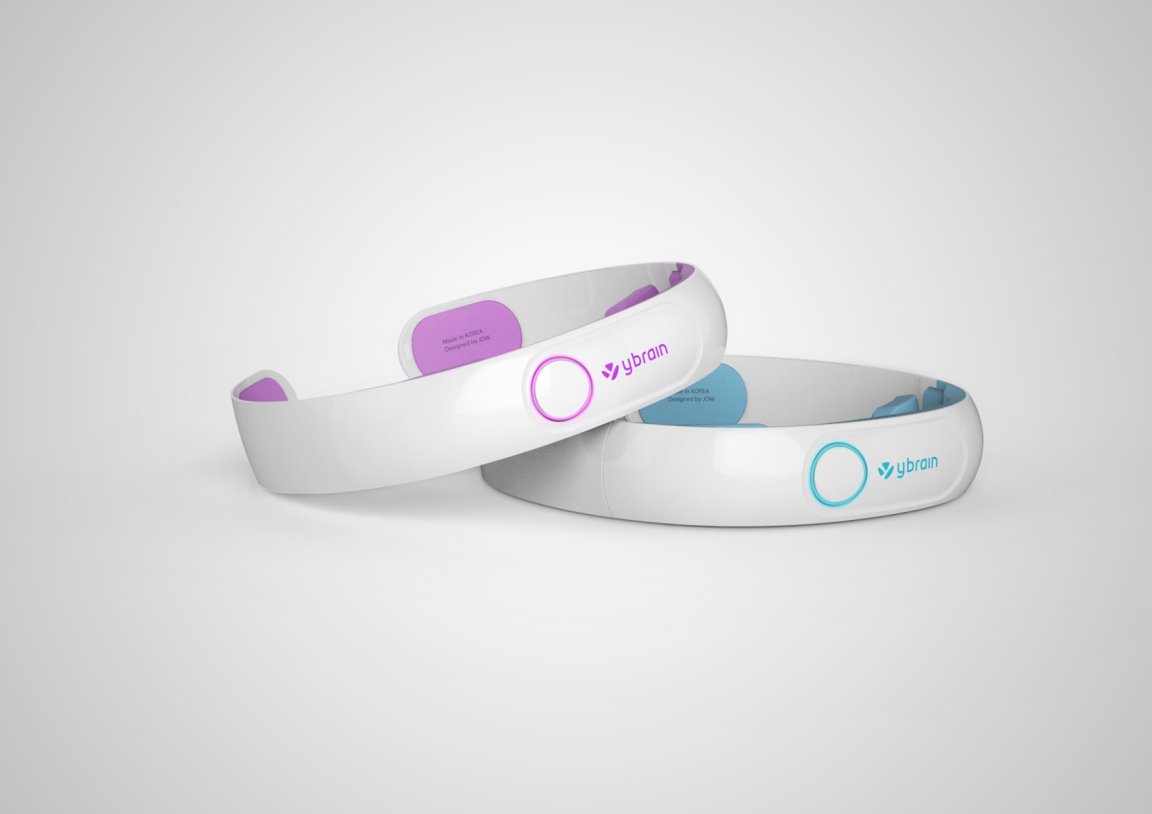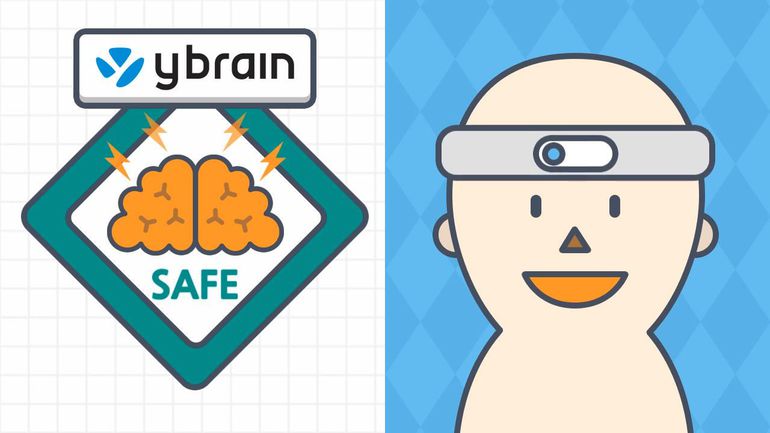
tDCS For Your Thoughts
South Korea is plagued by both high rates of suicide and social stigmas surrounding mental health treatment, a situation that makes treating depression challenging. Ybrain, a local startup, has developed a product that they’re hoping will help turn the tide: Mindd, a headband that delivers transcranial direct current stimulation (tDCS) to the frontal lobe.
Decreased activity in the brain’s frontal lobe is associated with depression. Therefore, the headband delivers a small stream of electricity to the region, to stimulate the area. The electricity is conducted through a saline-soaked absorbent pad that touches the forehead during treatment. About 20 percent of the electrical waves Mindd generates reach the brain.
Part of the appeal of this device is that it can be used at home, which might help patients avoid the stigma of mental health treatments. However, it does store data from users which is sent automatically to their doctor, including records of when they received the electricity therapy, what hours they slept, and their physical activity levels — all via a smartphone app. Ideally, doctors could use this data to monitor the well-being of their patients and incrementally improve their treatment regimens.
“By objectively recording everyday health markers that were previously reliant on the subjective memory of the patient, we hope to improve the quality of medical treatments,” Ybrain’s founding CEO Lee Ki-won told The Korea Herald.

Ybrain’s Startup Health Technology
Ybrain is among the current wave of startups that are focused on health-related technologies all over the world. Startups are developing smart drugs, nootropic stacks, gene therapies, smart tampons, three parent babies, and maybe even eternal youth. Ybrain has been around since 2013 when three engineers from Korea Advanced Institute of Science and Technology teamed up with the aim of developing wearable devices capable of treating mental disorders including Alzheimer’s disease and depression.
Four years later, Ybrain has raised 10.2 billion won ($9 million), making the commercialized version of Mindd possible. The results from the clinical trials are promising, although tDCS is still in its early stages as a treatment. Ybrain hopes to bring the device and its app to the American public in 2019.